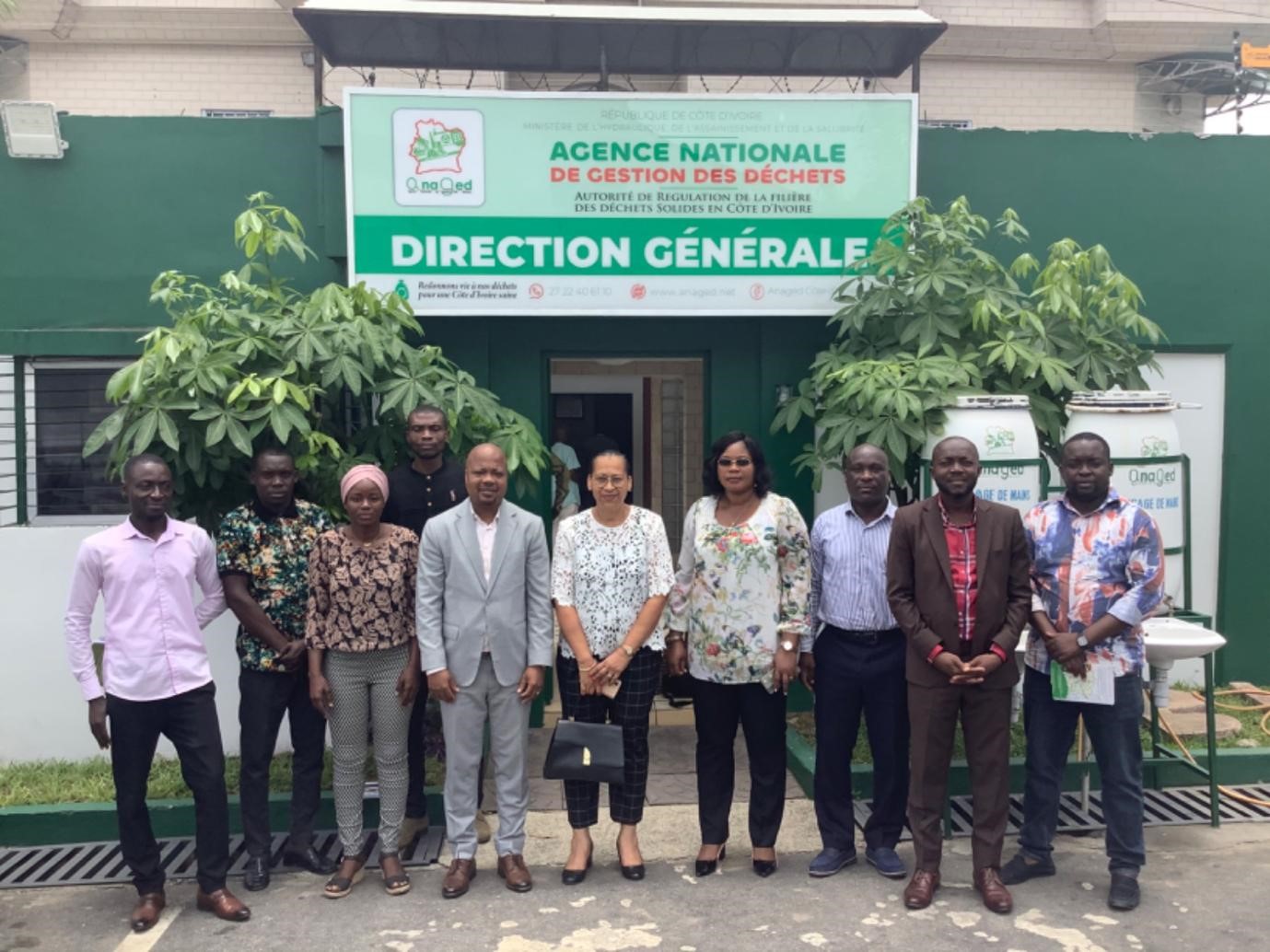In this report, we highlight the stakeholder engagement and partnerships of the Abidjan City Pilot in terms of the roles, resources and expertise that would be useful for the pilot.
In this pilot, the climate service that will be designed is a particulate pollution warning system through a PM2.5 measurements network and an effective communication in collaboration with stakeholders and the local population, using a participatory approach. The stakeholder engagements are related to the different actors who would contribute to this. The pilot will make use of continuous measurements of atmospheric particles (PM2.5 PM10, OC and BC) and gases (SO2, NH3, NO2, O3 and HNO3) at various sites. Three measuring devices (CairNET) have been acquired to reinforce the measurement sites, but several instruments are needed to cover the whole city of Abidjan. The stakeholders who will contribute to setting up the climate service have been identified. Discussions have been started with some of them, including INHP (Institut National d’Hygiène Publique), CIAPOL (Centre Ivoirien Anti-Pollution), SODEXAM (Société d’Exploitation et de Développement Aéroportuaire, Aéronautique et Météorologie) and ANAGED (Agence Nationale de Gestion des déchets). These discussions focus on protocols for co-designing the climate service and on what is expected from the stakeholders. In addition, there are already measurements of particulate matter (PM2.5) and a pollutant dispersion model to be used.
Meeting the representatives of Institut National d’Hygiène Publique (INHP)
In the beginning of February, the KADI team in Abidjan met with the Deputy-director of INHP under the Ministry of Health and Public Hygiene and the discussions focused on the approach and pilot sites.
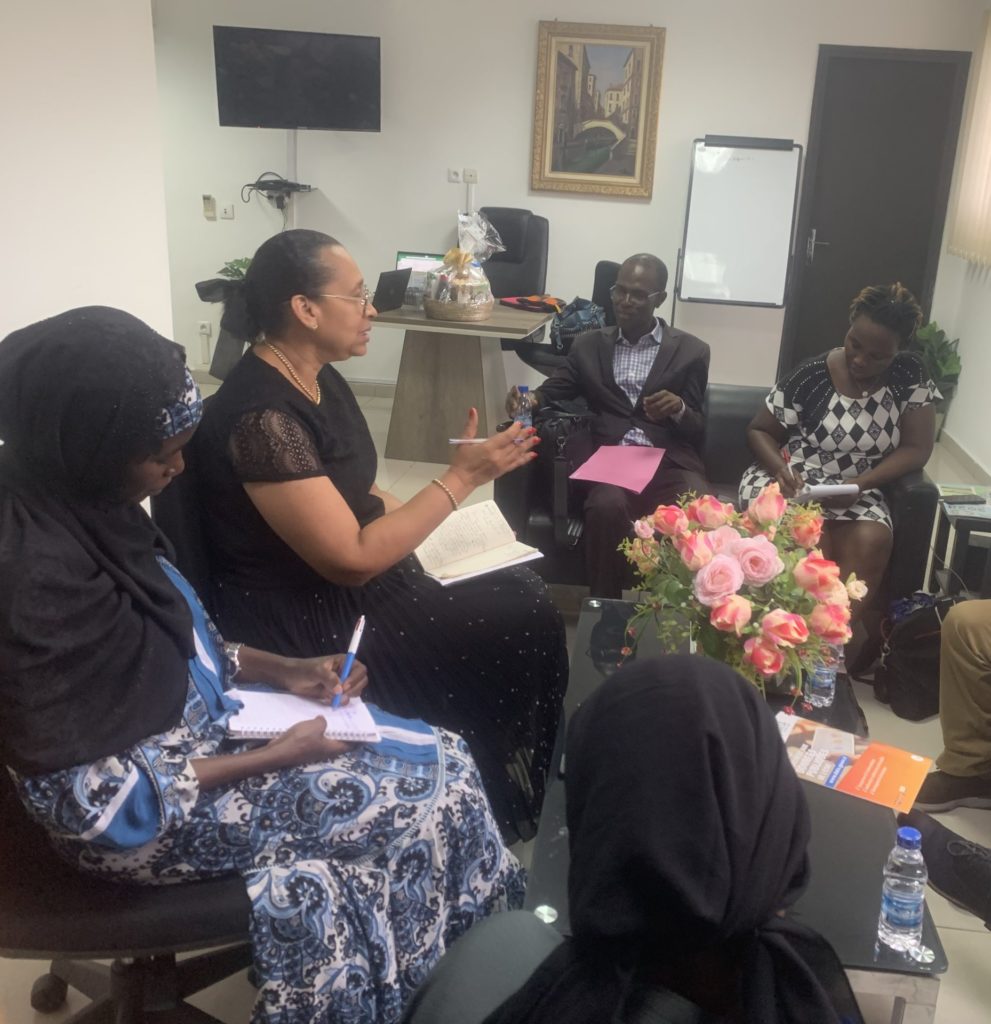
The participatory approach involves interacting and working with the inhabitants, local communities and administrative bodies on the project. The INHP trains public health workers to strengthen the system and administers a questionnaire to patients when they visit the health centres. The INHP has a sociological and scientific database as part of the projects piloted by public health in all the dispensaries and CHUs (University Hospital Centres) in the Cocody municipality. This database will be made available to the KADI team and updated with pollution-related aspects.
For this city pilot collaboration, the chosen site is the municipality of Bingerville. It is representative of the city of Abidjan, with high-standard houses as well as precarious neighbourhoods. The KADI team and the INHP team have already carried out several projects on this site.
Strengthening the partnership with Centre Ivoirien Anti-Pollution (CIAPOL)
Later in February, the KADI team met with CIAPOL, which oversees the monitoring air quality in Côte d’Ivoire. The discussions focused on the existing partnership with CIAPOL on the monitoring and evaluation of the National Observation Network of Côte d’Ivoire. The CIAPOL team and the KADI team at the UFHB are also working on other projects such as POLLUMETRE, Sustainable Cities and PTUA. CIAPOL can provide data on air pollution in the industrial sector. The UFHB team can merge the data sources to have a more complete database. CIAPOL will also help in the field with the technical aspects of questionnaires and meetings with local people. They will also contribute to dissemination as the national body responsible for air quality. The meeting was followed by the signing of an official letter of agreement for the collaboration.
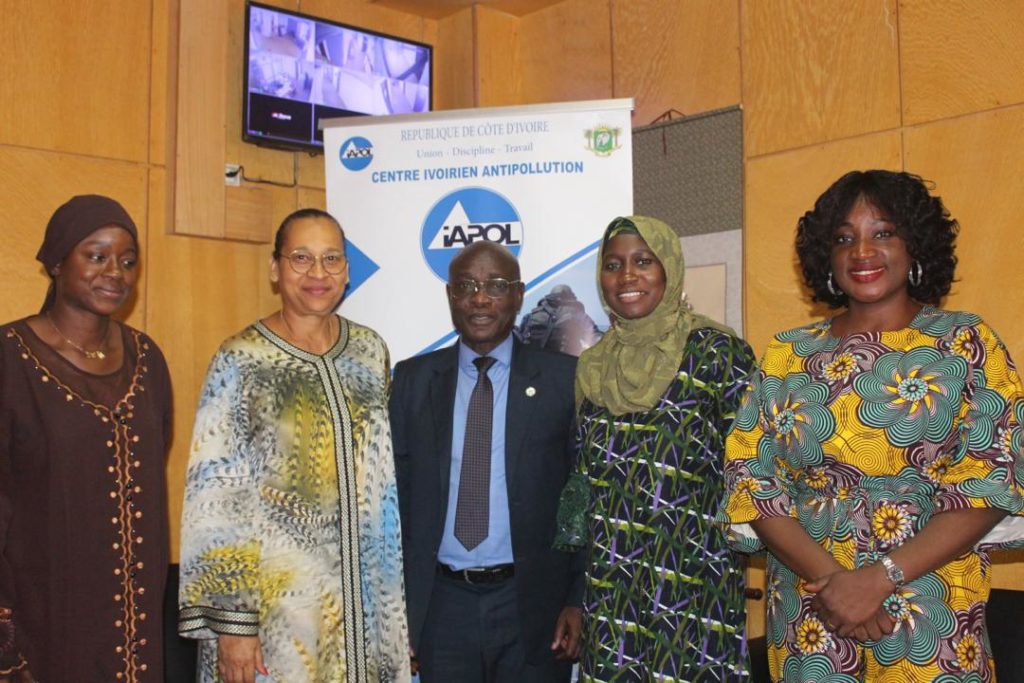
Collaboration with SOCEXAM (Société d’Exploitation et de Développement Aéroportuaire, Aéronautique et Météorologie) on pollution and heatwave modelling
SODEXAM was another one of the stakeholders with whom the Abidjan team met in February. It is the Airport, Aeronautics and Meteorological Operating and Development Company in Côte d’Ivoire. It is responsible for national meteorology, airport operation and development, air navigation and aviation.
The discussion with KADI focused on the climatic and meteorological data needed for our pollutant dispersion monitoring model. Based on SODEXAM’s long experience, the model to be used for air quality forecasting was also discussed. SODEXAM is already providing forecasts on heatwaves in Abidjan which will be a valuable experience to inform the climate service design. The meeting was followed by the signing of a collaboration agreement.
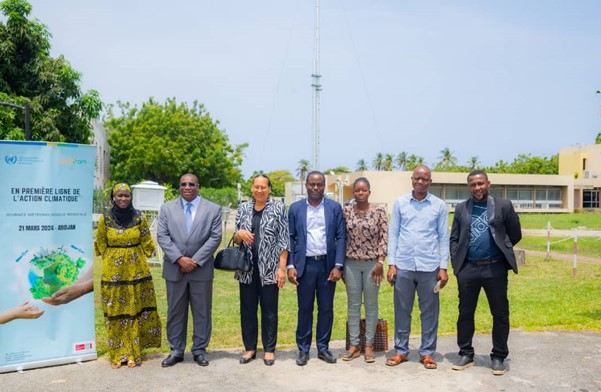
Tackling residential pollution awareness with ANAGED
ANAGED (Agence Nationale de Gestion des Déchets) was one of the stakeholders with whom the KADI Abidjan team connected. ANAGED oversees the measures to control and sanction residential pollution. The KADI partners met with directors and their teams, including the Heads of operations, monitoring, regulating, sanctioning and managing all solid wastes, and communication.
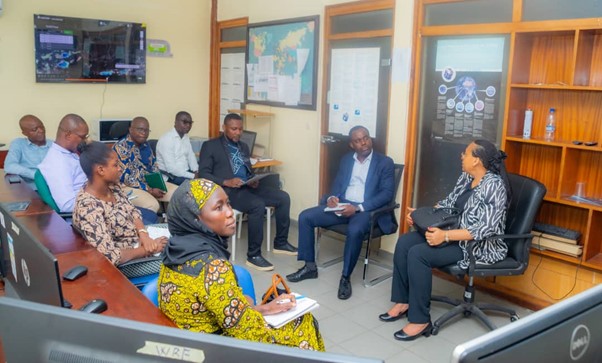
The discussion focused on the identification of the different sources of pollution, mainly the residential and domestique sources. ANAGED agreed to help ensure and take adequate measures and provide evidence of residential pollution. They could help raise awareness of the population on residential pollution and the behavior to adopt to reduce the risk. They could also support the participatory approach and facilitate meetings and interactions with the city inhabitants.


